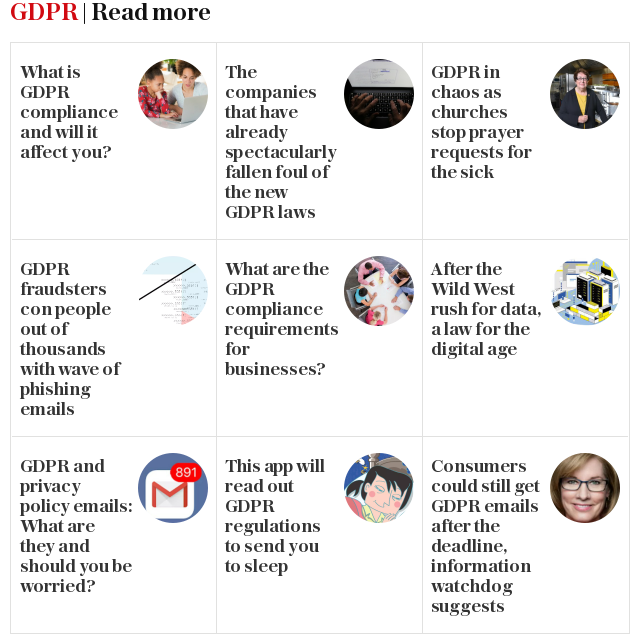Google increases tracking of web users under GDPR privacy law

Google appears to have benefited from a new European law that was designed to protect consumers from its web tracking practices.
The General Data Protection Regulation was created to rein in technology giants' control over European's personal information and grant more transparency around how digital advertising works.
But new research suggests the law may have backfired, unintentionally boosting Google's advertising business by hampering competition, according to figures from privacy software company, Cliqz.
It found that a month after the General Data Protection Regulation came into force on May 25, the number of “trackers” overall decreased except for a small few including Google, which is getting access to even more data than before.
Small trackers had lost between 18 and 31 pc of their reach - which could be considered a win for consumers. However, Facebook’s trackers declined just 7pc and Google managed to increase its reach by 1pc, pushing data that was more evenly spread before into the US giants’ hands.
These trackers include Cookies or Pixels which are pieces of code in websites that follow people around on the internet to try and get them to click on personalised advertising. They can detect individuals across websites, browsers and even devices.

Industry experts warned that GDPR might have this undesired consequences. Google and other larger advertising technology companies had a distinct advantage when it came to hiring lawyers to stay compliant.
Google, which has entire departments to work on GDPR, was also able to create its own consent tool in order to help publishers stay compliant, but reports suggested that it was using this dominant position to encourage publishers to decrease trackers and weed out its rivals.
Cliqz wrote: “For users this means that while the number of trackers asking for access to their data is decreasing, a tiny few (including Google) are getting even more of their data.”
Cliqz analysed the top 2000 domains visited by European residents in April and July. To determine market share it looked at half a million websites.
It comes as a tool developed by technology companies to stay compliant with GDPR was revealed to be leaving consumers more exposed to hackers.
Days after it came into effect, the European Commission has claimed it is not subject to the strict rules that it imposed across Europe, following an “embarrassing” leak of personal data on its website.

 Yahoo Finance
Yahoo Finance 